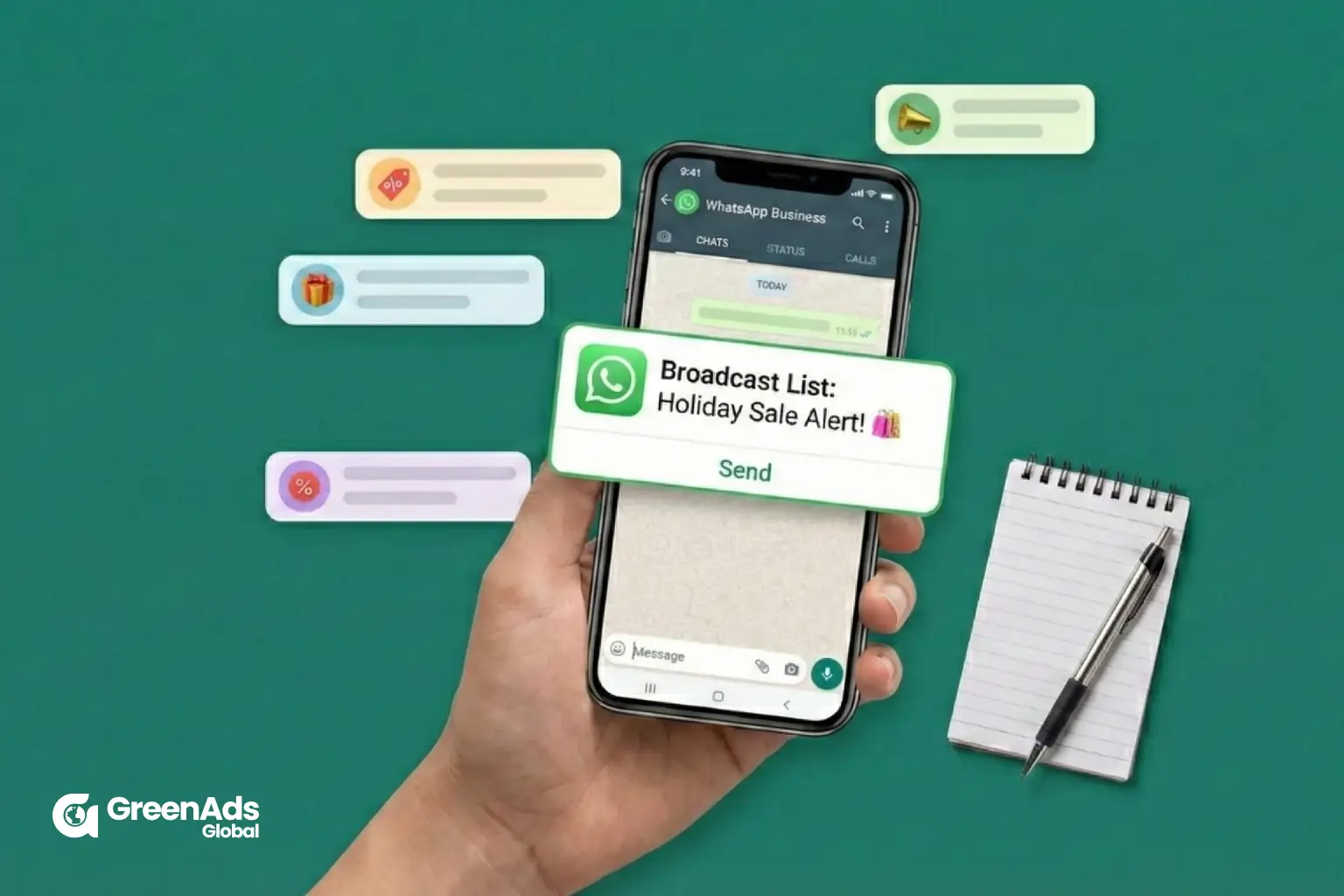Unlock Your 14-Day Free Trial with Free Credits!
Get Started for Free
RCS messaging the future of marketing
May 13, 2025
.
5 Min

Conversational marketing is revolutionizing how companies engage with customers. As contemporary consumers anticipate swift, individualized, and interactive messages, solutions such as Google RCS Messaging and the WhatsApp Business API are becoming compelling tools to address these expectations.
But as these platforms evolve, the big question is: Will there be a "war" between RCS and WhatsApp? Or will they coexist as complementary solutions? Let's dig into their strengths, current scenarios, and the future outlook.
What is Google RCS Messaging?
RCS (Rich Communication Services) is the future of SMS and MMS. Designed as an international standard and advocated for by Google, RCS extends richer messaging features to native messaging applications on Android smartphones. Imagine SMS with capabilities akin to instant messaging applications.
Major RCS Features Are:
- Rich media support (images, videos, carousels)
- Typing indicators and reading receipts
- Verified business profiles
- Suggested replies and actions
- Location sharing
- Chatbot integration
- Group messaging
What is WhatsApp Business API?
The WhatsApp Business API is a Meta-powered platform designed for enterprises to connect with customers at scale on WhatsApp. With more than 2 billion users worldwide, WhatsApp provides unparalleled access and trust among users, particularly in markets such as India, Brazil, and Southeast Asia.
Key WhatsApp Business API Features:
- Two-way messaging (with opt-in)
- Multimedia sharing (text, images, documents, videos)
- End-to-end encryption
- Chatbots and automation
- Business profile and verification
- Integration with CRMs and support systems
- Analytics and message tracking
Real-World Scenarios: Who Uses What?
Retail/E-Commerce:
A fashion brand wishes to notify customers of flash sales and abandoned carts.
WhatsApp: Sends timely reminders with customized coupon codes and enables users to converse with support in real time.
RCS: Sends rich, visually engaging carousels and clickable product cards directly to Android SMS inboxes.
Travel and Hospitality:
A travel agency wishes to send booking confirmations, check-in updates, and travel tips.
WhatsApp: Shares PDF tickets, sends location-based recommendations and supports 24/7 chat support.
RCS: Delivers interactive itineraries, boarding passes and maps in SMS directly.
Banks and Financial Services:
A bank wishes to send statements, fraud notices, and product offers.
WhatsApp: Provides safe communication with identification checks and encrypted data sharing.
RCS: Shows graphical summaries, interactive menus for services and simple one-tap call support.
Both solutions are scalable and adaptable, as a function of the brand's industry and target audience.
Who Has the Edge?
Although both solutions are paving the way toward messaging's future, they leverage different strengths:
WhatsApp Business API suits relationship-centric, secure, and international customer communication, particularly where WhatsApp user bases are largest.
Google RCS is promising in mass-market marketing, particularly where SMS remains superior and WhatsApp is low in penetration.
Global adoption of RCS still faces obstacles—particularly Apple's refusal (so far) to implement RCS for iPhones. This restricts RCS to Android-native users, which may slow down its domination. That being said, Google is still advocating for a standardized messaging system, and a future partnership with Apple may change the equation.
A Future of Competition or Existence?
Mark Zuckerberg recently emphasized that business messaging will be a key revenue driver for Meta, showing how seriously Meta views WhatsApp Business API. Meanwhile, Google is investing heavily in RCS to replace outdated SMS systems with rich, app-like messaging experiences.
Rather than one platform replacing the other, it’s likely we’ll see coexistence—with businesses adopting a multi-channel strategy based on geography, audience type, and use cases.
Future-Proofing Your Conversational Marketing Strategy
To remain competitive, companies need to:
- Implement omnichannel messaging: Leverage both RCS and WhatsApp to meet customers where they are.
- Personalize every interaction: Integrate with CRMs to customize conversations.
- Maximize productivity and customer engagement: With automated solutions and chatbots that deliver swift and seamless support.
- Stay compliant and secure: Particularly in regulated industries such as finance and healthcare.
- Measure and optimize: Monitor engagement, conversion, and customer satisfaction across channels.
Key Takeaways
- WhatsApp Business API is perfect for secure, personal, and globally scaled communication.
- Google RCS is ideal for rich, interactive, and low-cost messaging—particularly for Android users.
- The "war" is not a dominance battle but a race to deliver the most value to businesses and users alike.
- Both should be used by businesses, depending on where their customers are most engaged.
The Conversational Future Is Now
Conversational marketing is no longer a trend—it's a requirement. Whether you are a startup or an enterprise, the capability to converse in real-time, with rich media, and personalized touch is what differentiates you.
Both Google RCS Messaging and WhatsApp Business API are powerful platforms with enormous potential. Companies that adopt these tools early on will have a competitive edge in customer engagement, conversion, and brand loyalty.
Struggling to pick the ideal platform or start? Reach out to GreenAds Global – your go-to partner for RCS, WhatsApp Business API, and chatbot integration.
₹ 899
₹ 2,249
₹ 3,149
$30
$50
Book a One-to-One Meeting With Our Product Expert
Have questions? We have got answers! Connect with our product expert for a personalized demo session and discover the best messaging solutions for your business.







.svg)